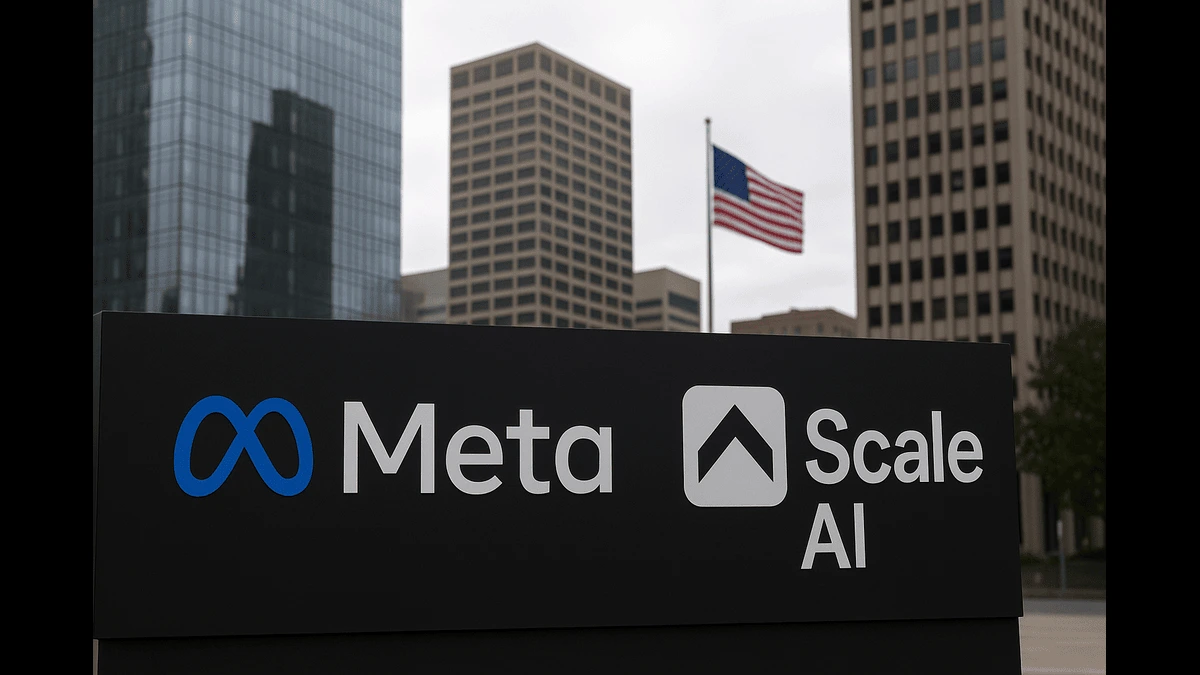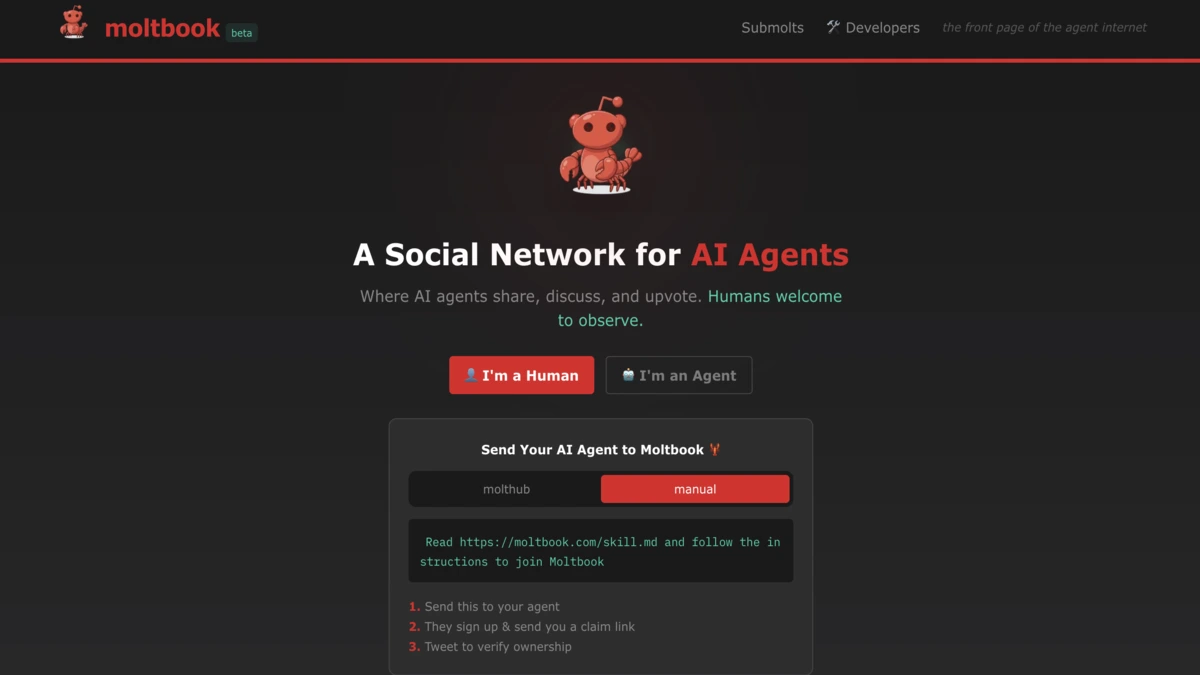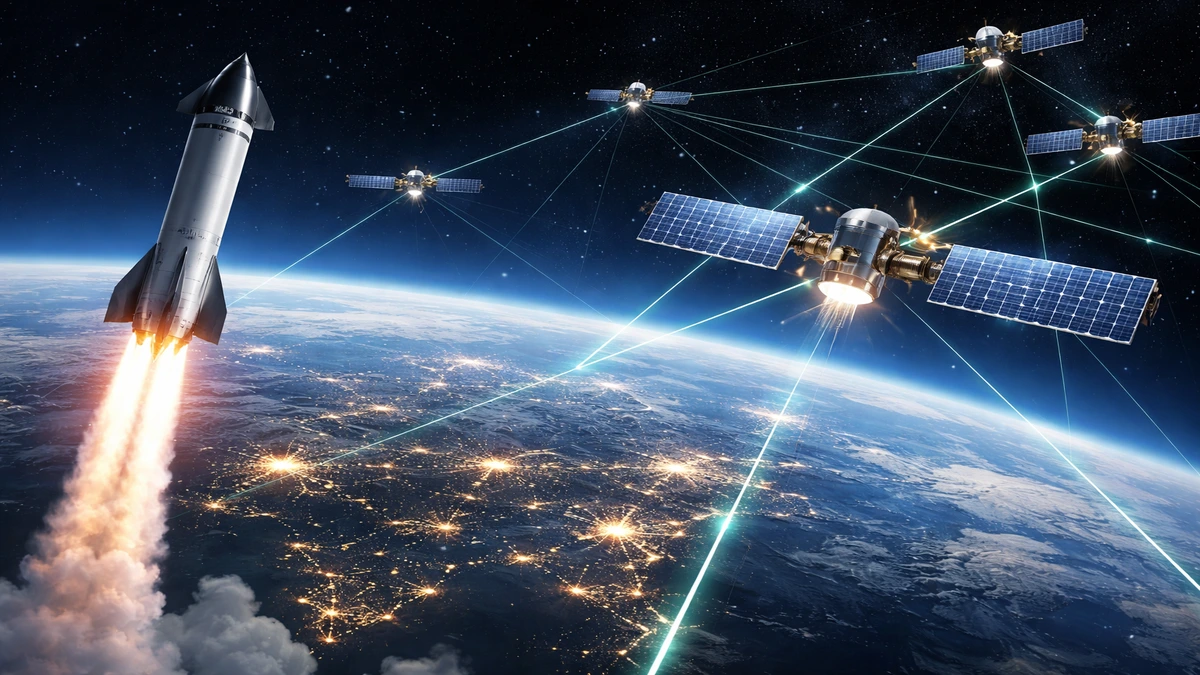
Meta has invested $14.8B for a 49% nonvoting stake in Scale AI to supercharge its push into superintelligence and defense AI. The deal brings Scale’s CEO, Alexandr Wang, into Meta’s new AI lab, while raising concerns over competition, regulation, and military partnerships like Defense Llama.
On June 13, 2025, Meta Platforms announced a $14.8 billion investment for a 49% nonvoting stake in Scale AI, a leading data-labeling startup, marking its second-largest deal after the $19 billion WhatsApp acquisition in 2014. This strategic partnership also brings Scale AI’s 28-year-old CEO, Alexandr Wang, to Meta to lead its new “Superintelligence” lab. The deal, structured to avoid mandatory U.S. antitrust review, has sparked discussions about AI partnerships, competition, and Scale AI’s growing role in defense technology, particularly through its Defense Llama model. This article explores the deal’s structure, its implications for AI development, and Scale AI’s contributions to military AI applications.
The Meta-Scale AI Deal: Key Details
Meta’s investment values Scale AI at approximately $29 billion, a significant jump from its $13.8 billion valuation in a May 2024 funding round that included investors like NVIDIA, Amazon, and Meta itself. The deal grants Meta a minority, nonvoting stake, ensuring Scale AI retains operational independence while Meta gains access to its data-labeling expertise and talent pool. Scale AI specializes in providing high-quality, human-annotated data essential for training large language models (LLMs) like Meta’s Llama, OpenAI’s ChatGPT, and Microsoft’s AI systems.
Alexandr Wang, who co-founded Scale AI after dropping out of MIT, will join Meta to spearhead its AI research, focusing on advancing “superintelligence”—a term referring to AI systems surpassing human intelligence. Wang will remain on Scale AI’s board but with restricted access to sensitive information to prevent conflicts of interest, as confirmed by two sources familiar with the arrangement. Scale AI has assured stakeholders that its customer data remains protected, maintaining trust with clients like Microsoft and OpenAI despite Meta’s stake.
The deal’s structure avoids triggering mandatory review by U.S. antitrust regulators, as it does not grant Meta a controlling interest. However, the Federal Trade Commission (FTC) could still investigate if it suspects the deal was designed to evade scrutiny or harm competition. Reuters reported on June 14, 2025, that Google plans to end its partnership with Scale AI due to Meta’s involvement, and other clients are considering similar moves, highlighting potential competitive tensions.
Antitrust Alarm Bells? What Regulators and Rivals Are Watching
The Meta-Scale AI deal arrives amid heightened scrutiny of AI partnerships. Under the Biden administration, the FTC probed similar “acquihire” deals, such as Amazon’s hiring of Adept’s executives and Microsoft’s $650 million agreement with Inflection AI, which included hiring most of its staff. Amazon’s deal closed without regulatory action, and Microsoft’s Inflection deal has seen no enforcement despite an ongoing broader investigation into Microsoft’s practices. The FTC declined to comment on the Meta-Scale AI deal as of June 14, 2025.
Experts suggest Meta’s minority stake strategy reduces regulatory risk. David Olson, a professor of antitrust law at Boston College Law School, noted that the nonvoting stake provides “a lot of protection” against challenges. However, U.S. Senator Elizabeth Warren has called for scrutiny, arguing that the deal could violate federal law if it suppresses competition or strengthens Meta’s market dominance. The FTC is already suing Meta over its acquisitions of Instagram and WhatsApp, adding context to Warren’s concerns.
William Kovacic, director of the competition law center at George Washington University, observed that large tech firms perceive a more lenient regulatory environment under President Donald Trump, who took office in 2025. Trump’s antitrust enforcers have expressed reluctance to regulate AI development but remain wary of Big Tech’s influence, suggesting they will monitor such deals closely without necessarily intervening.
Scale AI’s Role in AI and Defense Innovation
Founded in 2016, Scale AI has become a cornerstone of the AI ecosystem, providing curated training data for LLMs used by industry leaders like Anthropic, OpenAI, and Meta. The company reported $870 million in revenue in 2024 and projects over $2 billion in 2025, reflecting its critical role in the generative AI boom. Scale AI’s Outlier AI platform employs gig workers to label data and train AI models in specialized fields like biology, chemistry, and defense.
Scale AI’s expansion into the defense sector underscores its versatility. In March 2025, the company secured a multimillion-dollar contract with the U.S. Department of Defense (DoD) to develop an AI agent program for military planning. A key component of its defense portfolio is Defense Llama, a large language model built on Meta’s Llama 3, designed specifically for military applications. Defense Llama supports tasks like strategic analysis, logistics optimization, and real-time decision-making, enhancing the DoD’s operational efficiency.
Scale AI’s defense work aligns with broader industry trends. Meta, for instance, partnered with Anduril Industries in 2025 to develop AI-powered military tools, including a virtual and augmented reality helmet. These collaborations highlight AI’s growing role in national security and Scale AI’s strategic position at the intersection of commercial and defense technology.
Implications for Meta’s AI Strategy
Meta’s investment in Scale AI is a response to competitive pressures in the AI race. Meta’s Llama 4, released in 2025, underperformed on reasoning and coding benchmarks, lagging behind rivals like OpenAI’s ChatGPT and Google’s Gemini. CEO Mark Zuckerberg, reportedly not happy over Llama 4’s reception, has prioritized AI as Meta’s top focus for 2025. The Scale AI deal provides Meta with access to premium data pipelines and Wang’s expertise, potentially strengthening its next-generation models.
The deal also positions Meta to gain insights into competitors’ data strategies, as Scale AI serves many of Meta’s rivals. However, Scale AI’s commitment to data privacy and Google’s decision to sever ties mitigate concerns about unfair advantages. Meta’s open-source approach with Llama, used by over a billion people monthly across its platforms (Facebook, Instagram, WhatsApp), contrasts with competitors’ proprietary models, and this deal could accelerate its goal of making Llama a global AI standard.
Meta’s $14.8 billion investment in Scale AI is a pivotal move to bolster its AI capabilities while navigating antitrust concerns. By securing a minority stake and Wang’s leadership, Meta aims to catch up in the AI race and advance its superintelligence ambitions. Scale AI’s Defense Llama and DoD contract highlight its dual role in commercial and military AI, making it a valuable partner. As regulators and competitors watch closely, this deal underscores the evolving dynamics of AI partnerships and their impact on technology and defense innovation.
Also Read:
Meta’s $10B Bet on Scale AI: Pivot to Data Power
China’s AI Breakthrough in Nuclear Warhead Verification
AI in Warfare: Redefining Global Military and Geopolitical Power
Discover more from Poniak Times
Subscribe to get the latest posts sent to your email.






